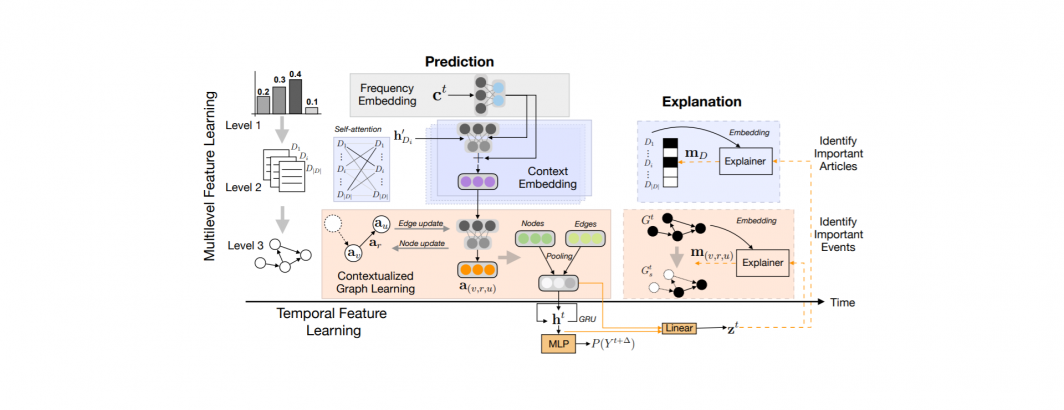
A new paper by researchers at the Stevens Institute of Technology and George Mason University explores "Understanding Event Predictions Via Contextualized Multilevel Feature Learning":
Deep learning models have been studied to forecast human events using vast volumes of data, yet they still cannot be trusted in certain applications such as healthcare and disaster assistance due to the lack of interpretability. Providing explanations for event predictions not only helps practitioners understand the underlying mechanism of prediction behavior but also enhances the robustness of event analysis. Improving the transparency of event prediction models is challenging given the following factors: (i) multilevel features exist in event data which creates a challenge to cross-utilize different levels of data; (ii) features across different levels and time steps are heterogeneous and dependent; and (iii) static model-level interpretations cannot be easily adapted to event forecasting given the dynamic and temporal characteristics of the data. Recent interpretation methods have proven their capabilities in tasks that deal with graph-structured or relational data. In this paper, we present a Contextualized Multilevel Feature learning framework, CMF, for interpretable temporal event prediction. It consists of a predictor for forecasting events of interest and an explanation module for interpreting model predictions. We design a new context-based feature fusion method to integrate multiple levels of heterogeneous features. We also introduce a temporal explanation module to determine sequences of text and subgraphs that have crucial roles in a prediction. We conduct extensive experiments on several real-world datasets of political and epidemic events. We demonstrate that the proposed method is competitive compared with the state-of-the-art models while possessing favorable interpretation capabilities.